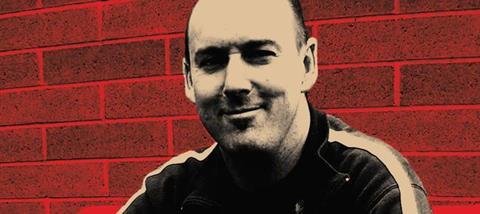

PT: Why did you do this survey?
AB: It goes back to 2010 when I was speaking at a youth conference in Malaysia. I was really challenged by what we were doing in terms of trying to engage youth culture with the Bible. I was challenged to think about our assumptions and whether we at the Bible Society were actually listening and responding to youth culture. What’s influencing these young people? What’s shaping them? What are the questions they are asking? I was really challenged around those core questions. I came back to Australia, and we embarked on 18 months of research into young Australians and the Bible. I got a number of national and denominational organisations on board and we funded this research. So for 18 months a research organisation travelled around Australia interviewing young people - not necessarily Christian young people but young people who had a connection with a church, a school chaplain or had Christian friends - so they all had a connection with Christians even if they weren’t Christian themselves.
We wanted to find out several key things with our research. One was whether the Bible seemed to be important to Christian leaders and young people in Australia. We also wanted to find out how the Bible influences youth culture in Australia, and specifically, what’s working and what’s not working in engaging young people with the Bible. They were the three things that we wanted to dig into and do some significant research into. That was released and it was quite a significant research paper. I then spent about 12-18 months connecting with different youth leaders around Australia and basically putting the research out there in an interactive forum – saying: ‘here’s what’s going on with our young people – how are you responding to this? How does this influence you on the ground, as a youth leader, face-to-face with kids every day of the week?’ So it was very much about finding out how youth leaders and chaplains could use this research and how it was influencing their ministry. I did about seven or eight of those forums around Australia. The research and then unpacking it with people on the ground took about two years, and we have published the findings in The Bible according to Gen Z.
91 PER CENT OF YOUNG PEOPLE IN AUSTRALIA WITH A CONNECTION TO CHURCH OPENLY STATE THAT THE CHRISTIAN FAITH AND THE BIBLE HAVE LITTLE IMPACT IN SHAPING THEIR THINKING ABOUT LIFE
PT: Did you find any particularly shocking facts about how young people and youth leaders themselves engage with the Bible through the research?
AB: There are a couple of surprising statistics. For example, 91 per cent of young people with a connection to a church or Christian school openly state that the Christian faith and the Bible have little impact in shaping their thinking about life. I think we would have assumed that young people involved in and immersed in the Christian life would identify that it actually shapes them, but 91 per cent would say that it doesn’t, and so that was a challenge. One in a hundred young people will pick up the Bible out of curiosity or interest. That was a bit of a shock for us. One other thing that emerged is that many young people struggle to believe that Bible stories actually happened. They tend to think that the Bible is based on myths, fables and legends, and they believe that the miracle stories in the Bible are actually exaggerated. A lot of young people who profess to be Christians actually have a real issue with confidence in scripture. When young people were asked whether they thought that the miracle stories in the Bible actually happened, 25 per cent of young people who have a connection with a Christian school said that it was not true at all. Only 8 per cent said it was definitely true. Many of these young people are reading stories of the miraculous in scripture and doubt that it really happened.
PT: Do you think it’s got something to do with the biblical illiteracy of adults in the Church - youth leaders and parents, and even church leaders - or do you think that it’s a cultural shift in the secular society of Australia?
AB: I think that they both intertwine. I think in Australia it’s similar to the UK in that we’re a secular culture now; we’re post- Christian. Christianity is just one of the faiths on the smorgasbord of religions - so young people pick and choose the best bits from all of them. In fact, another interesting statistic was that out of 2000 young people in Australia who attend a Christian school, 39 per cent said it was important to pick and choose beliefs from all religions and ideas. That really underpins the sense that young Christian people are actively influenced and seeking meaning and spirituality in a whole bunch of different beliefs and religions. I think that’s tied in with a post-Christian culture and with the challenge for young people not to be seen as intolerant. Post-modernity says: ‘What’s right for me, is right…truth for me is different to everyone else’s and that’s ok…so don’t stand up there and tell me that I have to believe in the Bible.’ How do we engage young people with the Bible in that sort of culture?
We know from research that the family is incredibly pivotal in shaping the faith and spirituality of a young person, but how does that happen when a stable family environment these days is a rare thing? How does the family and home environment shape the spirituality of a young person in modern culture? I think there’s also a significant breakdown between the home environment and the church or youth group environment. Over the past couple of decades we’ve seen the rise of paid youth and children’s pastors and the professionalisation of those ministries. As that has happened I think we’ve seen a great decline in the confidence of Christian parents to mentor and be part of the discipleship process for their kids. There’s a sense, certainly in Australia, where Christian parents abdicate their responsibility to engage in prayer, Bible reading and spiritual conversations with their children. They’ll say, ‘I don’t know the answers to the questions you’re asking, go and ask your youth pastor.’ I think that’s added to this crisis of confidence in scripture for young people.
I read some interesting research from America recently which said that out of ten young people who profess to be Christians at 18, by the time they’re 25, eight out of the ten will no longer call themselves Christians. And I think that would be very similar in Australia and I suspect in the UK as well. The underpinning issue is why and how we are failing to disciple these young people and how we begin to address this.
Christianity is just one of the faiths on the smorgasbord of religions - so young people pick and choose the best bits from all of them
PT: You’ve talked about how the UK is probably similar to Australia. Do you know of any similar research in the UK? Or are there any findings from your research that we can apply to youth work in the UK?
AB: I think there are a lot of similarities. In the UK the Bible is viewed with open hostility. In parts of Africa it’s viewed with suspicion, and in Australia it’s viewed with apathy. The classic response in Australia to the Bible and Christianity is ‘whatever!’ They’re not anti and they’re not opposed, it’s just not on their radar and they really don’t care about it. They’ve got everything they want and need, so why would they need the Bible? I think that’s also reflected in the fact that the majority of young people, and especially those who profess to be Christians, tend to approach the Bible as a self-help book. They have their four or five well-chosen verses that they go to. For instance, if they fail their exams and they’re devastated and thinking ‘What am I going to do now?’, they’ll read Jeremiah 29 and find comfort and support in some of those well chosen passages of scripture. Our research brought out really clearly that most young people approach the Bible as a self-help book.
The things shaping youth culture are similar in the UK, like post-traditionalism, individualism and the whole need to experience things. Experientialism is something that we see really strongly here with the emergence of the live worship movement. Here in Australia, Hillsong and Planetshakers are the two main ones. These mountaintop experiences are great, but we’ve consistently seen that they are all that is holding a young person’s faith together. They hit 17 or 18, go to university and get their first job, and suddenly those experiences and even their self-help book approach to scripture actually don’t answer the questions and struggles in life that they’re encountering, and so they kind of give up on their faith. The Bible is then confirmed in their own minds as a book for Sunday School, a book of nice stories and weird characters.
THE RESEARCH PAINTS THE SEVERITY OF THE ISSUE. IT SAYS THAT YOUNG PEOPLE WHO IDENTIFY THEMSELVES AS CHRISTIANS (AND ALSO THOSE WHO ARE LEADING THEM) ARE NOT ENGAGING DEEPLY WITH THE BIBLE
PT: What was working in engaging young people with the Bible?
AB: The book and the research paints the severity of the issue. It says that young people who identify themselves as Christians and also those who are leading them are not engaging deeply with the Bible. That’s the picture we get. It’s a real issue, it’s a crisis…and the book moves into stories and practical approaches that are working. So it presents the issue but then it also presents some solutions and some ways forward through it.
One particular finding was the value of peer-led Bible engagement methods. So, rather than the youth leader standing up-front and delivering and controlling the Bible study, actually empowering young people to lead themselves through that study and Bible engagement process. We found that when young people are released in a peer-led environment to engage with scripture, it is often really powerful and it is the environment in which the young people say that the Bible comes alive for them. So this has really reshaped how we try and engage young people with the Bible and also how we support and resource youth leaders in doing that.
We’re finding that peer-to-peer engagement is really working, but also tapping into a narrative approach to scripture, an overarching story of God and his creation, and his interaction with his creation. A lot of our resources are formed around how we engage with and react to scripture as a narrative, as a big story. How does my story fit and interact with God’s story? How does our story as a community, as a school, as a church or as a youth group, interact with and fit into this big story of God that we read in scripture?
We held a retreat recently where we went through the entire biblical narrative over seven days. At the end of this camp, a 14-year-old boy said: ‘It’s like the Bible is in colour now, when it used to be in black and white.’ That kind of quote encapsulates for me what we want to see when we’re encouraging young people to engage with scripture: it’s no longer black and white, it’s vibrant and in colour.












































